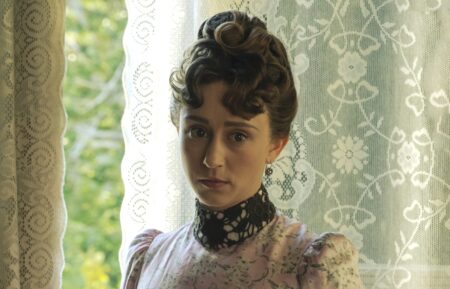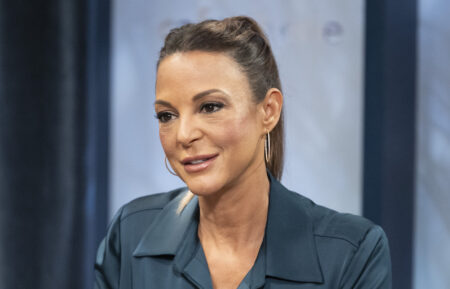How One Pilot Reflects What’s Ahead for Transgender Stories on TV

As the TV landscape becomes increasingly transgender-friendly, Myrna seems like a natural next step. Its creators are shopping around the pilot for the series, which plans to tell the story of a trans woman trying to get her life together. It features a trans woman playing the lead role. One of its executive producers is Kristin Beck, the author and ex-Navy Seal who transitioned from male to female. There’s just one thing, though. Throughout the entire pilot episode, two words are never spoken: “transsexual” and “transgender.”
“That was on the table from the beginning. The only word we do use is ‘transition,'” explains Myrna star and co-creator Marlo Bernier, who loosely based the potential series on her own life as an actor who transitioned from male to female mid-career. “For me, it was important to keep those other words out of the pilot because they didn’t have anything to do with the story. Myrna is about a middle-aged woman trying to get her life back. Maybe one day she can say, germane to nothing, ‘I had a transsexual past.’ But the character of Myrna, like me, won’t reside in her transsexualism.”
Myrna is trying to join not only Amazon’s award-winning Transparent, but also upcoming reality shows such as ABC Family’s Becoming Us, Discovery Life’s New Girls On the Block and TLC’s All That Jazz, in giving transgender men and women visibility they’ve never had on television before.
Bernier, working as Mark Bernier, made guest appearances in series like Cold Case, Alias and Las Vegas. Six years ago, however, Mark became Marlo full-time. “I didn’t want to be considered for trans specific roles,” she recalls. “I just figured I could be the auntie or the lady next door.”
In 2012, a production company approached her about doing a reality show to chronicle her life. She and her producing partner, Ted Campbell, shot a seven-minute sizzle reel but “this reality company said, ‘You don’t need a reality show, you need a show show,” says Bernier.
The idea for a scripted series took hold. She, Campbell and friend Jennifer Fontaine tried to arrange Kickstarter financing for a Myrna pilot; when crowd-funding came up short, Bernier went back to focusing on her acting career. But in late 2013, when a friend asked her whatever happened to the project, Bernier was inspired to try again. This time, it took just 10 days to raise enough money.
Beck came on board after she started receiving e-mails from friends advising her to check out the project. “It has such potential to show a real person with real struggles, and some real victories,” explains Beck.
Bernier and company shot the pilot in six days last summer for “roughly the budget for Red Vines on some television sets,” she says. Earlier this month, they put Myrna up online to gauge its popularity; in less than a week, it had more than 100,000 views.
“We had joked we should call it Cat Plays Piano In Pajamas instead, to get some views, but somehow we caught the attention of someone who passed it on to someone else and then we were off,” Bernier says. She is now hoping that the online interest will translate into offers from networks to turn Myrna into a transgender series that avoids being just a “transgender series.”
“Myrna is everybody and everybody is Myrna,” she explains. “Hers is not a story for the LGBT community. It doesn’t have a trans agenda. It has a human agenda. It’s a story for people. Period.”
READ MORE
Trans Stories Take the Television Spotlight in New Crop of Reality Shows, Pilots
From TV Guide Magazine
How 'Countdown' Recruited Jensen Ackles to Go Full 'Die Hard'
Countdown boss Derek Haas talks creating the character around Ackles, and the cast teases the “Avengers”-like team of the crime thriller. Read the story now on TV Insider.








